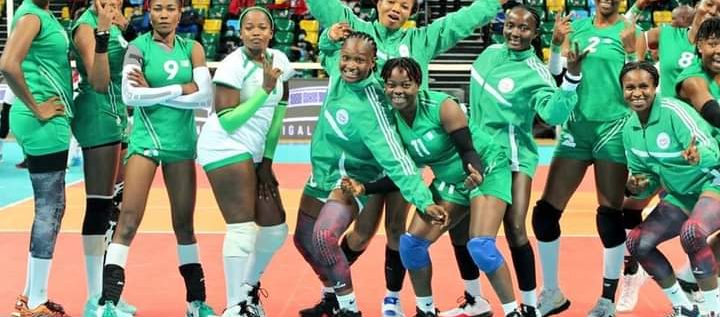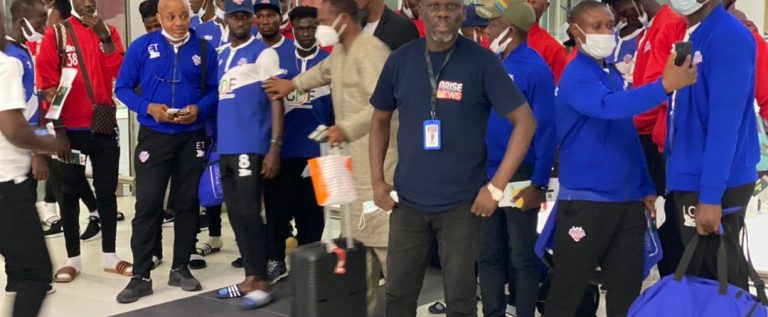NFF’s Refusal To Drop Aged Players Cost Super Falcons WAFCON Final Ticket

![]()
By Our Correspondent
Super Falcons quest to win a record extending 10th Women’s Africa Cup of Nations, WAFCON in Morocco on Monday ended in a dramatic fashion after the defending champions succumbed to a 4-5 penalty defeat against host Atlas Lionesses of Morocco in their semi-final encounter.
The Falcons went into the tournament as one of the favourites to defend the crown they won in December 2018 in Ghana. And despite a blip start with a 2-1 opening Group C match loss to new rivals, South Africa, the Queens of Africa football defeated debutants Bostwana and Burundi to book a last four date with Morocco
However, dramatic moments that saw Randy Waldrum’s ladies reduced to 9 women in the second half, made their defence journey a lot more longer and tedious.
But South African legend Portia Modise has blamed the defeat squarely on the refusal of the Nigeria Football Federation NFF to hand opportunities to younger players rather than heavily relying on aged players.
Modise opined that the nine-time Africa champions have lost their winning edge because they keep fielding many aged players that ought to have retired instead of giving opportunities to younger players from their Under 20s.
Super Falcons have three players aged 30 and above including captain Onome Ebi (39) who played all the four matches, midfielder Rita Chikwelu (34) and goalkeeper Tochukwu Oluehi (35).
Modise who scored 101 goals for Banyana Banyana said “One thing that I see in the Nigerian team is that they don’t want to let go of the senior players. They need to give the young players an opportunity. Experience alone is not going to work,” said the 39-year-old, who retired in 2015 after playing for 15 years with Banyana Banyana, during a media event organized by FIFA ahead of the 2023 Women’s World Cup.
“I see players that I used to play against, but now I am retired, they are still there. We need to give a chance to the young kids and young generation that are coming.”

Modise also said that Nigeria’s absence from the final is an opportunity for South Africa or Morocco to win the WAFCON title for the first time while the Super Falcons can try to understand what went wrong with their campaign.
“I am so happy that Nigeria is not part of the final. They have been dominating us for so many years.
“But it gives them an opportunity to go back home, to go back to the drawing board and see how to come back with a winning mentality.”
Modise also thinks that the increase in World Cup slots to four for Africa means that more teams get to play on the big stage to help develop women’s football on the continent.
“The game is changing in the minds of a lot of people. It is now left to sponsors that need to take the risk and say they want to grow the women’s game,” Modise said.
The four semifinalists at the WAFCON South Africa, Morocco, Nigeria and Zambia have all qualified, with the Lionesses and the Copper Queens reaching the World Cup for the first time.
Modise believes that the regional qualifying strategy adopted by CAF has resulted in more teams getting an opportunity to play at the WAFCON even though it means that teams like Ghana have to contend with Nigeria in the WAFU Zone, something that led to their failure to qualify for this year’s WAFCON and no chance of reaching the World Cup in Australia and New Zealand next year.
Nonetheless, she hopes that African teams will be able to impress at the World Cup despite the gulf in class and experience between them and the rest of the world.




